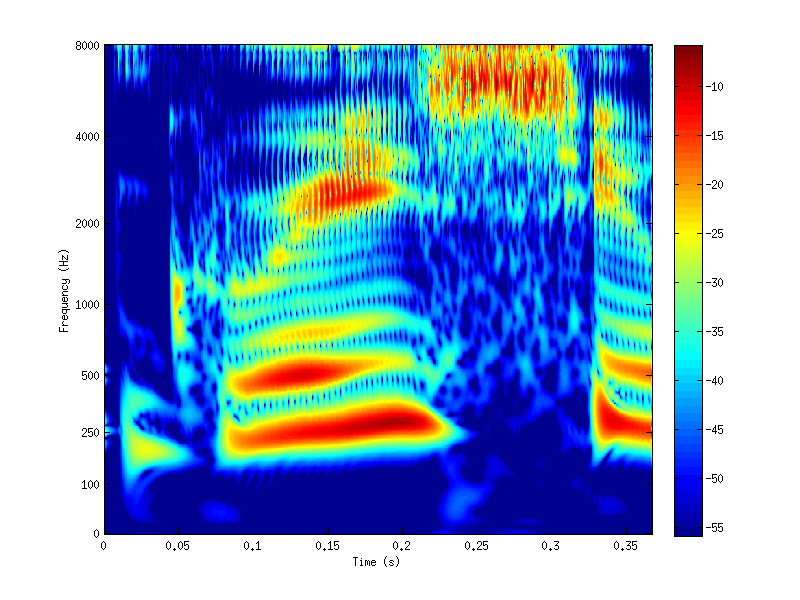This is in the context of speech signals. The magnitude spectrogram is computed by framing the signal into short time windows, applying a hamming (or similar) window, computing the fft over each window, and taking the absolute value of the complex numbers obtained. I came across the Auditory Spectrogram in a paper and several toolkits (http://amtoolbox.sourceforge.net/amt-0.9.5/doc/general/audspecgram.php, http://www.isr.umd.edu/Labs/NSL/Software.htm). Do they refer to the same thing? Or else, how is the auditory spectrogram computed and what are the differences between the two representations?
1 Answer
Edit: As Jazzmaniac pointed out, the below answer I've given is incorrect. See Jazzmaniac's comment for explanation!
The first source you provide contains this image as an example output of the function audspecgram():
This very much appears to be a standard spectrogram of an acoustic signal. To describe it as an 'auditory spectrogram' might just hint to that fact—that it's derived from an acoustic signal. In other words: you are right in suspecting that what is described as an 'auditory spectrogram' in your source is just a spectrogram that is a result of exactly the procedure you describe to obtain it.
-
1$\begingroup$ I'm afraid this is not correct. The term auditory spectrogram specifically refers to a spectrogram that is obtained from a model of at least the first layer of auditory perception. In most cases it is the magnitude spectrogram produced by an auditory filterbank. $\endgroup$ Commented Nov 30, 2017 at 12:51
-
$\begingroup$ Thanks for the correction! I put in a disclaimer at the top. $\endgroup$ Commented Nov 30, 2017 at 13:03
-
$\begingroup$ That's just a filter-bank type spectrograph graphed by an array of filters, one at every frequency. I prefer these to FFT's although FFT is faster. $\endgroup$ Commented Oct 17, 2019 at 10:57

